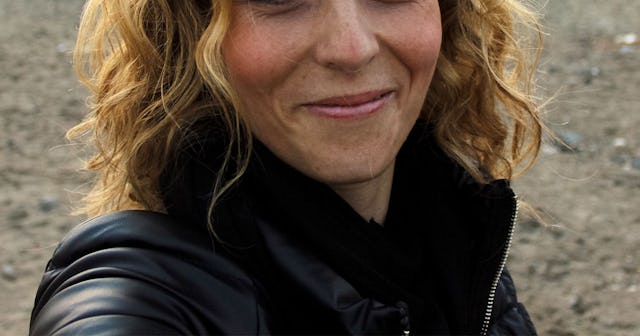Why You’ll Never See Me Use A Beauty Filter

I used to want to be a fashion designer. I’d sit for hours and draw different outfits. When I was younger, I got a job as soon as I could and spent all my money on Lady Stetson, and clothes from T.J.Maxx. I’d do makeup tutorials in front of the mirror with my mother’s Mary Kay products (something I wasn’t allowed to use), and pretend I knew what I was talking about in front of a large audience.
Before social media came along, my kids used to make fun of me because when I’d cook something, I’d tell them what I was doing as I did it.
Now, you spread the pizza dough, then drizzle it with olive oil, and sprinkle with salt.
They’d tell everyone I thought I was on a cooking show.
One of my favorite things to do is sit around with my girlfriends and sisters and talk about hair, make up, and clothes we love. It’s therapeutic and I genuinely get a rush from it.
So, when my Instagram began to grow (thanks to my writing career), and I started posting pictures of myself, I was excited to share where I got my clothes or throw pillows from. People wanted to know, and I was flattered and loved sharing my sources.
I’m almost 46 now. Making videos of myself trying out mascara or a face mask isn’t always easy for me. I just took four takes of myself putting on a facemask for a promotion I’m doing. I was makeup-free, and all I could see were my dark circles, the way my forehead creases, and the fact my neck is starting to head south.
To say I want to slap on one of those beauty filters to feel better about myself isn’t a lie. However, I’m not going to do it.
First, those filters aren’t my face. They change the shape of my eyes, my nose, and take away everything about me that is real.
How can I honestly and reliably show you how well a face mask works for me if I’m filtered to death?
Second, after seeing so many people using these filters I began to feel bad about the way I looked. I know they are using filters. I also know how much better these filters make me look, so why it’s so hard to hammer into my brain that it’s doing the same for others is beyond me. I just know it affects my self-esteem.
The biggest reason you will only see my keeping it 100% real (I don’t care about the mean comments) is that I refuse to add to the insecurities these filters are causing for our teenagers.
Last fall, my daughter sent me several TikTok videos about girls saying after using filters they wanted to get a nose job or have plastic surgery in order to look like a filter.
We’ve gone way beyond photoshopping here. People are using FaceTune, then adding a filter, and showing you someone who isn’t even them. Not even close.
It’s hard to look at my sagging jowls. My nose is too big for my face, and you can see every vein underneath my fair skin. My ears stick out. I don’t have great hair, and my eyebrows never seem to be the right shape. I could use a little help.
But I refuse to live in a filtered world and try to tell you a certain product works amazing, then have the nerve to pass off a filtered face as proof.
Because there’s no product out there that can do for you what a filter on Instagram does. News flash: filters are the furthest thing from real you can get.
How can we teach the younger generations self-acceptance, self-love, and how not to focus all their energy into their looks if we are filtering ourselves beyond recognition?
My teenage daughter is watching me. What kind of example am I setting for her if she sees me filtered every time I am online? She knows what I look like in person — and the message I’d be sending would be that I don’t think I look good enough as myself, so I need to show the world something different.
Yes, I am older than a lot of influencers. But I have worked hard to accept myself and realize I am never going to look like anyone but me, imperfections and all. I’ll be damned if I am going to let a filter take away from me. And I’ll be double-damned if I am going to affect the way someone else feels about themselves because they see me hiding behind some fake effects, pretending to be flawless as it makes them feel less-than.
I feel vulnerable at times; it’s only natural. But if I can make a difference in even a few lives by showing my aging, sometimes makeup-free face, it’s more than worth it.
This article was originally published on